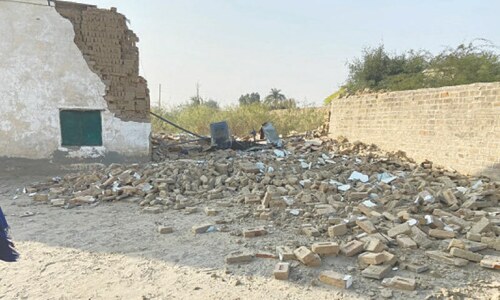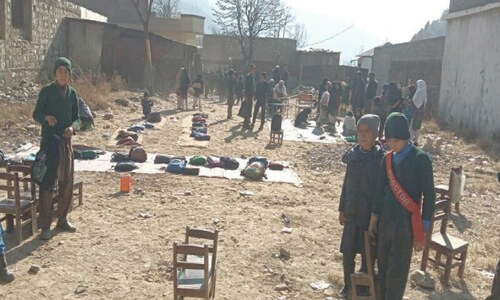PESHAWAR: More than 4,000 cybercrime cases of fake online accounts, hate speech, hacking, online financial fraud and illegal SIM cards were reported in Khyber Pakhtunkhwa last year, said the Federal Investigation Agency.
The information was disclosed by FIA deputy director (cybercrime) Tahir Khan in a seminar on cybercrime and its various forms here, according to a statement issued on Friday.
A one-day awareness seminar on ‘cybercrime, digital forensic and cyber security’ was held at the University of Engineering and Technology, Peshawar in collaboration with the FIA and National Centre for Cyber Security, UET Peshawar.
UET Vice-Chancellor Prof Iftikhar Hussain, who was the chief guest on the occasion, said the university was striving to excel in research-based education as part of its mission and its faculty and researchers were actively engaged in applied research at the state-of-the-art facilities.
Peshawar UET holds seminar on cyber security
He said the federal government had approved four centres of excellence, including National Centre for Cyber Security, National Centre in Big Data and Cloud Computing, National Centre of Artificial Intelligence, and National Centre for Robotics and Automation.
He said the cyber security environment had become more vulnerable to cybercrime in the rapidly changing world and that the FIA and NCCS were collaborating to look into possibilities for joint ventures and controlling cybercrime.
NCCS director Dr Sadeeq Jan said his centre was a joint initiative of the Higher Education Commission and Planning Commission to develop capacity in the field of cyber security in leading Pakistani Universities.
“The Innovative Secured System Laboratory established at UET Peshawar under the NCCS project has been addressing issues and developing solutions related to IoT devices developing products in the cyber security testing and block chain by using state-of-the-art genetic algorithms,” he said.
The director said the NCCS had been addressing issues related to vulnerably and risk assessment, security consultations, training services, security policies for organizations and penetration testing.
“The NCCS at the UET Peshawar has so far developed 12 tools and published more than research publications in the world’s renowned research journals and recently conducted an international conference on cyber security,” he said.
The FIA deputy director (network security) highlighted national cybercrime laws and said the number of crimes had increased 600 per cent during the Covid-19 pandemic and most of them were related to defamation, hacking of accounts, and unauthorised access to information.
He briefed participants on various laws and acts of parliament on the subject.
Published in Dawn, January 22nd, 2022















































Dear visitor, the comments section is undergoing an overhaul and will return soon.